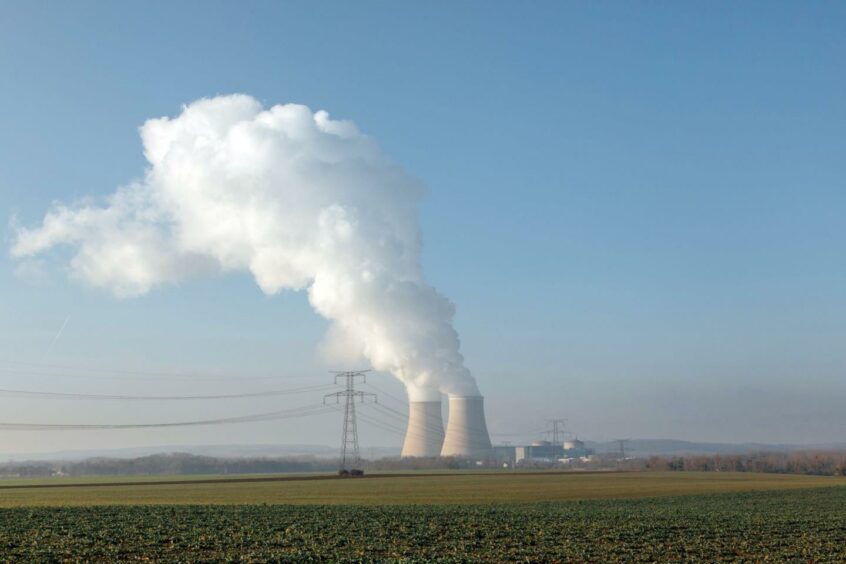
Europe has botched an historic opportunity to create a global benchmark for sustainable investing after agreeing to treat gas as a green asset, according to bankers, investors, climate activists and their lawyers.
Stephanie Pfeifer, chief executive of the Institutional Investors Group on Climate Change, whose members oversee more than $50 trillion in combined assets, described Wednesday’s decision by the EU Parliament to include gas in Europe’s green investing rulebook as “disappointing.”
Stephan Kippe, head of ESG research at Commerzbank, said it “doesn’t make the fight against greenwashing any easier.”
Climate activists, meanwhile, were far more outspoken, with Global Witness calling it a “sick joke.”
The vote, which passed with a narrower majority than anticipated, means gas and nuclear energy will be included in Europe’s so-called green taxonomy starting next year. The fuels will then be incorporated in a wider European framework intended to steer capital toward sustainable goals. But investor groups were quick to point out that the finance industry may treat the decision with caution, with some potentially even boycotting the new green labels.
“Whether gas and nuclear genuinely meet the conditions for being qualified as a transitional activity is doubtful,” Hugo Gallagher, senior policy adviser at the European Sustainable Investment Forum (Eurosif), whose members represent about $20 trillion in assets under management, said in an interview. “There will certainly be a segment of the industry that won’t consider investment in gas or nuclear as green, regardless of what the taxonomy says.”
Wednesday’s vote comes as the wider environmental, social and governance investing industry faces questions about how much good it’s doing for the planet. It also follows entreaties from scientists to do more to fight rising temperatures as the world runs out of time to beat climate change. In April, the United Nation’s Intergovernmental Panel on Climate Change estimated that the planet might be on track for temperature increases that may be twice the limit set out in the Paris climate accord.
‘Dangerous precedent’
Laurence Tubiana, an economist who helped work on the 2015 Paris climate accord, said the EU “has missed its chance to set a gold standard for sustainable finance. Instead, it has set a dangerous precedent.”
Pfeifer at IIGCC called it a “missed opportunity for the EU to continue to show global leadership on climate change with a robust and science-based taxonomy that underpins a credible pathway to net zero.”
The EU has maintained that its goal is to offer coal-reliant member states an easier transition path to renewable energy by making lower-carbon options more affordable. But critics counter that the approach brings political agendas to what was supposed to be a science-based framework. And since Vladimir Putin’s invasion of Ukraine, tensions have also risen around passing a law that might make it harder for the EU to wean itself off Russian gas.
Elise Attal, head of EU policy at the United Nations-backed Principles for Responsible Investment, said the decision “will complicate” the taxonomy’s implementation. Investors will need to scrutinize the contents of their portfolios to make sure green claims are actually based on science, or risk exposing themselves to “potential greenwashing,” she said.
Details of the plan
- Gas projects replacing coal and emitting no more than 270 grams of CO2 equivalent per kilowatt-hour can get a temporary green label, or if annual emissions don’t exceed an average of 550 kilograms per kilowatt-hour over 20 years.
- Such plants would have to obtain construction permits by 2030, and have plans to switch to renewable or low-carbon gases by the end of 2035.
- Nuclear is eligible if new plants that are granted construction permits by 2045 avoid significant harm to the environment and water resources.
- Funds need to enhance disclosures to investors on nuclear and gas holdings under the taxonomy.
- The EU Commission described the expanded taxonomy as a sensible compromise that takes the needs of all member states into account. It called the vote an “important recognition of our pragmatic and realistic approach in helping many member states on their transition path towards climate neutrality.”
Most of the criticism of the expanded taxonomy has centered on gas, with backers of nuclear energy pointing to its status as an emissions-free fuel. The vote is a “turning point” for the nuclear industry and will facilitate investment into existing and new power stations, said Jean-Bernard Levy, the CEO of Electricite de France SA.
But concerns remain that the new taxonomy will divert financing to nuclear projects that could have gone to renewables, according to Sasja Beslik, chief investment officer at NextGen ESG. “The signal it sends — and signals matter — is that the EU is big on words and pledges, but very poor on real action.”
The EU already faces legal challenges to its decision to include gas and nuclear power in its taxonomy. Austria and Luxembourg have signaled they plan to challenge the move in the courts, though that’s a process that might take years.
Nonprofit groups also are planning legal action. “Branding fossil gas as transitional and green in the taxonomy is unlawful as it clashes with the EU’s key climate legislation, including the European Climate Law and the Taxonomy Regulation itself,” said Marta Toporek, a lawyer with ClientEarth.
Toporek said ClientEarth is joining with other nonprofits and “looking at options to challenge” the EU’s decision.
“Greenwashing cannot win,” she said.
Recommended for you
